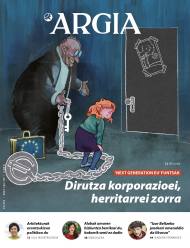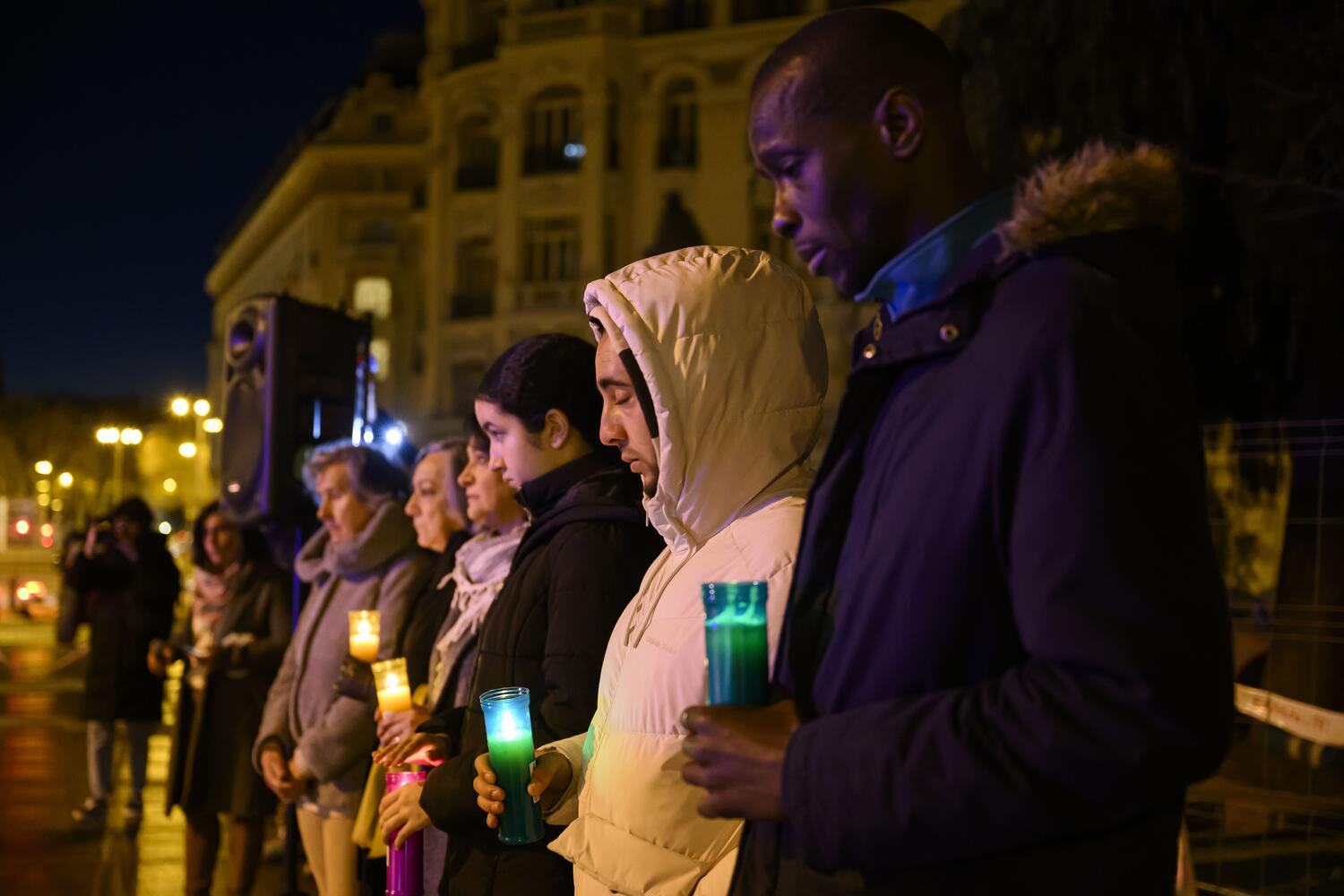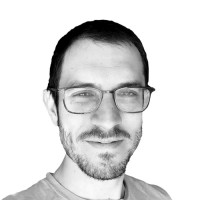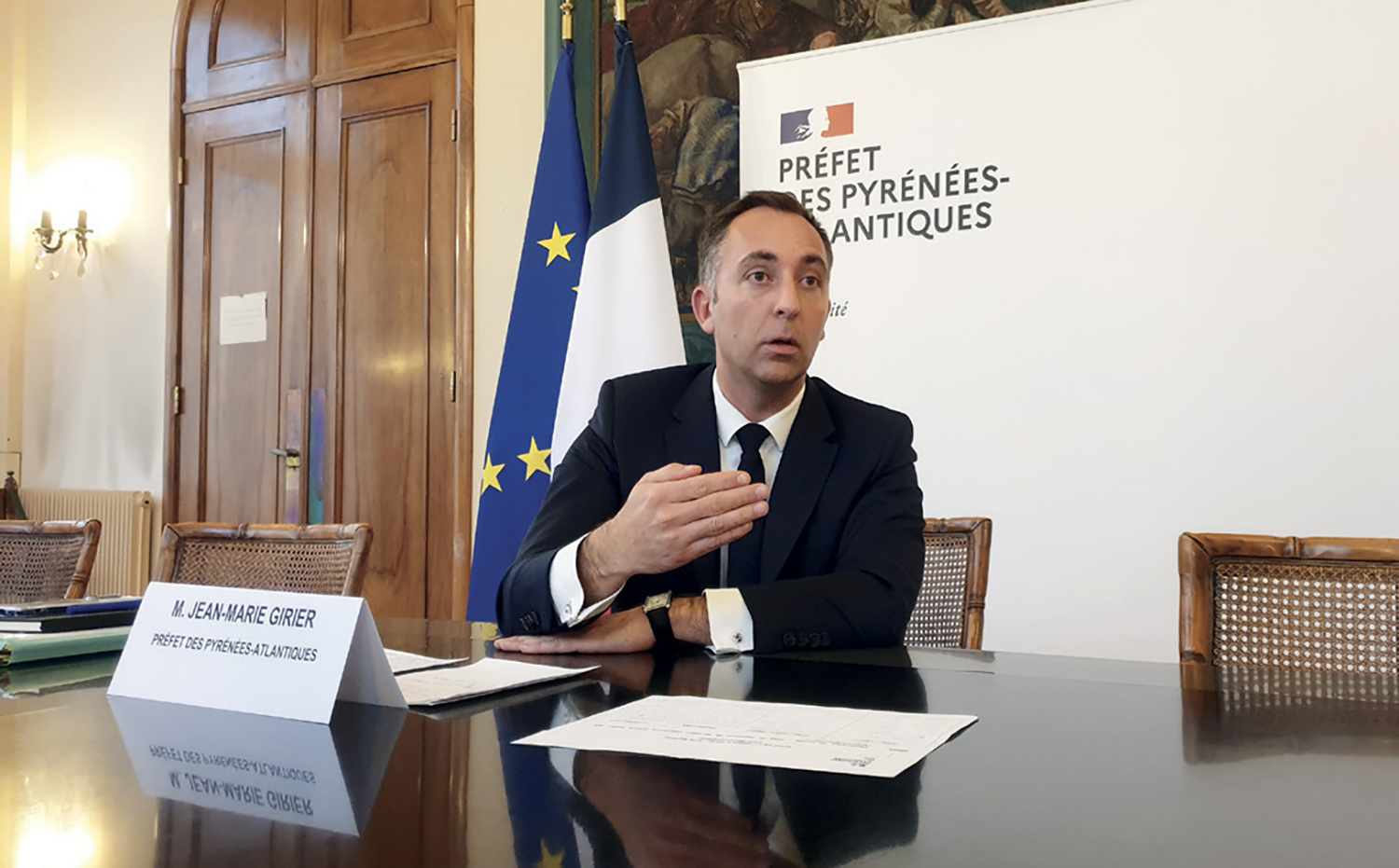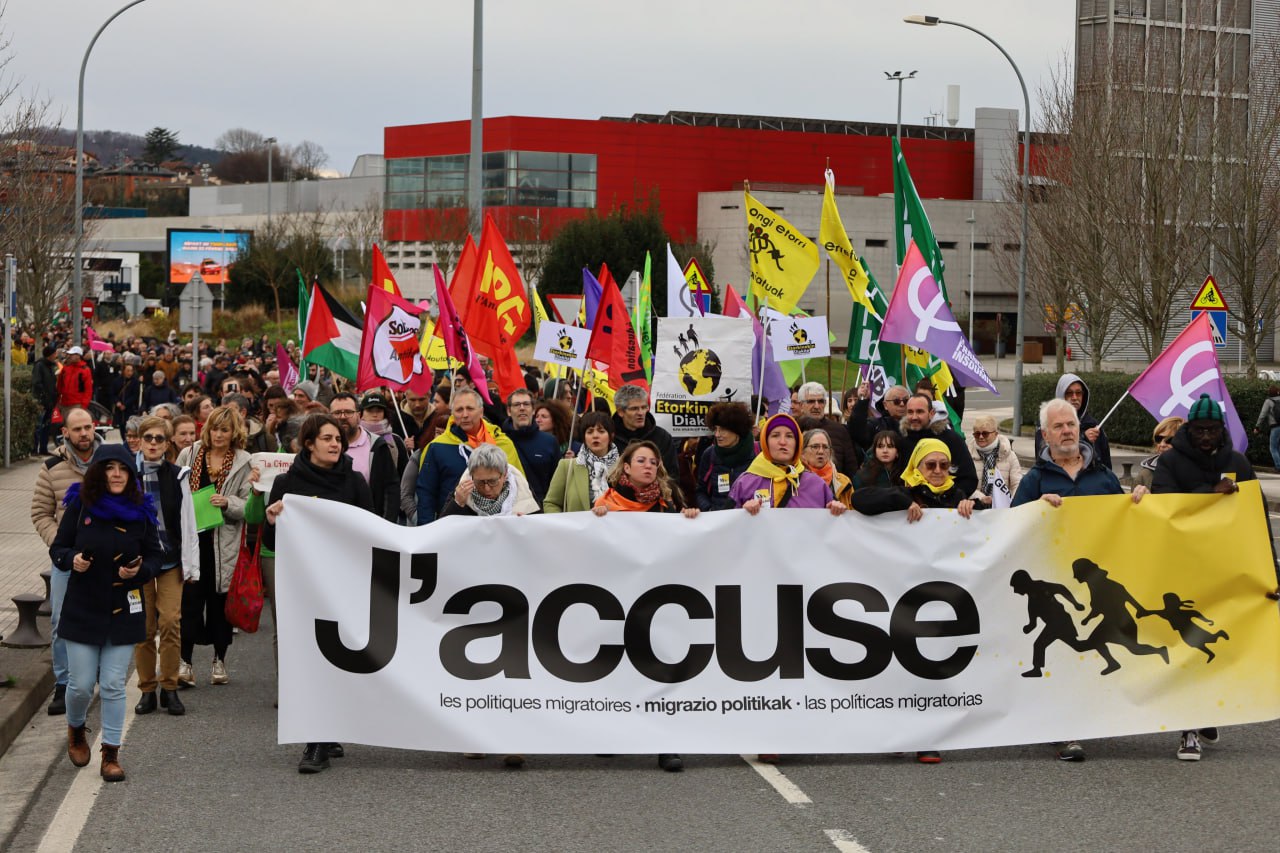Immigrants are progressing with more and more obstacles on the way, at any price
- The forced confinement by COVID-19 and eviction orders, added to which are the sausages and roadways controls between Ipar and Hego Euskal Herria... the violent reality became even stronger in 2020 for migrants. Maleruski, the situation should not improve in 2021. Why? Because, instead of guaranteeing acceptance, the leaders of Brussels, Paris and Madrid are developing expulsion policies. We have set ourselves in the Irun-Baiona stage to learn about their obstacles and also the forms of solidarity they have in our environment.
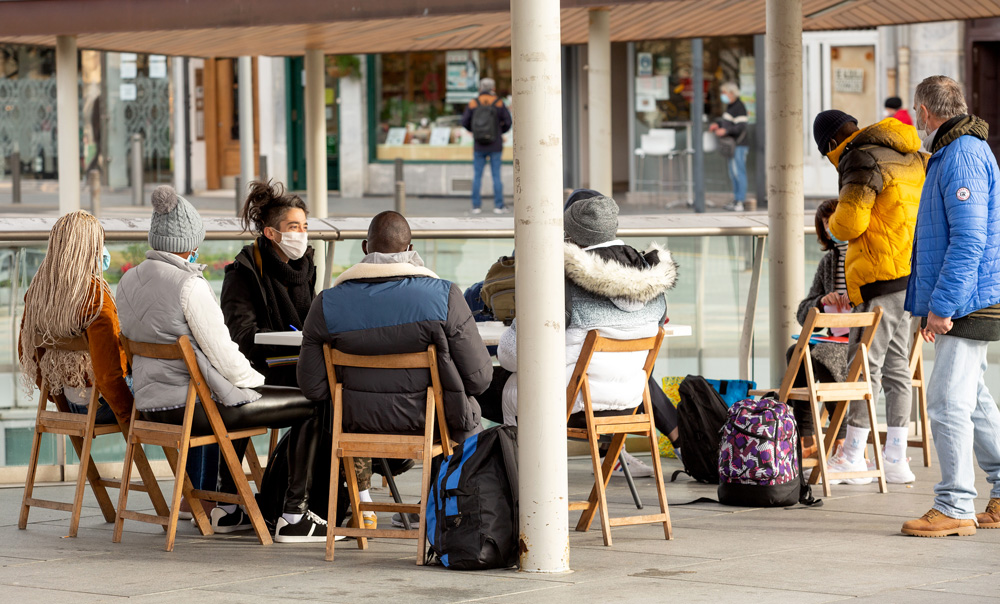
We do not know what we will find on the way, we leave... We have the objective of reaching France and, if possible, we will continue towards Germany.” These are the words of the young Bolikostar who has just arrived at the Plaza de San Juan de Irun, leaving behind his family, his friends and everything, of whom he is on his way. These are four other young people from Mali and Guinea, known the day before, who have spent the night in the Red Cross hostel and have approached the appointment of the Irun Reception Network. Volunteers from this citizen network have moved every morning from 10:00 to 12:00 to the Plaza de San Juan to attend, advise and help immigrants. Since 2018, more than 15,000 immigrants have been accompanied, 2,000 so far last year.
They know that the adjoining stop will be that of Baiona, although until then they had never heard of Baiona. In the other part of the Bidasoa you will find another network of collaborators, and you will also have the Pause stop, a support point for a couple of days.
When the French Government has decided to do so, we have a few steps in the pipeline between Ipar and Hego Euskal Herria, and COVID-19 also limits the movement and reception quickly since last year, we have faced up to the reality of the immigrants we have between Irun and Baiona. “In the first lockdown very few people came, but still they continued to come; in summer they returned more. As the march of the whole of society, we have had to change our own, we have had to adapt to the new reality to guarantee security measures,” says volunteer Anaitze Agirre. And they've done it because, for the time being, no one has picked up COVID-19 at this time of reception.
Since 2018, a road has developed that goes from North Africa to the south of Spain, which has been complicating the rest of the routes until then – the entry of Greece and Italy to Europe has become increasingly complicated, and access to Croatia has been brutally violent, as the news of recent weeks has warned us. And maleruski, the new path that opens, is always worse than the previous one, warns Agirre.
In recent times, the Canary Islands are the main point of access – and of course, looking at the circumstances: because, optionally, no one would take what is known as “the most lethal roads”. If they survive for a long day and a long night at sea, piled up on the island as a camp of shame, they stay there for whole weeks. According to figures from the Spanish Ministry of the Interior, in 2020 23,000 people arrived in Africa, compared to 2,687 in the previous year. Nothing that broke out, curse: Last year, 2,170 immigrants were devoured, 85% of them in sea transit to the Canary Islands, according to data from the NGO Walking Border (NGO). “They don’t want to talk about that moment, they just say they’ve had tremendous fear. It’s very hard and they don’t want to look back,” says Agirre.
The most irritating thing is that it is the result of political games between states: “The immigration police are on the coast of Morocco. Depending on the situation in which it is located, it relaxes or tightens controls on what Morocco and Europe want to achieve. Now it’s going to become more flexible because it wants to get something.” That is, they have as instruments to put pressure on the State in front of them which are ways of life or death for the inmigrantes.La
next stage runs between Irun and Baiona, with more fear and difficulty, with an administrative limit in the center. Last year, controls were stepped up – French President Emmanuel Macron announced in November his decision to double the number of police officers – and atypical borders were closed between April and June.
Since 14 January, several roads have been reinstalled with landslides, so the period for implementation of the measure is unknown. Officially, it is a measure of "combating terrorism", according to sources of the fight against terrorism. “Terrorism is an excuse, it is more to control and limit displacement and to a large extent the movements of people without papers,” says Maite Etxeberri, a lawyer of the Cimade Association, who advises immigrants at the reception centre opened in Hendaia in 2008. In the first lockdown, the prefecture decided to close the center, releasing inmates or sending them to other centers. In general, look with concern at the year 2021: “Whether with the increase in border controls or with the legislations discussed at European level, we are in the ‘everything is safe’ logic and are promoting confinement and expulsion.” At the moment, there are no figures from last year, but in 2019 355 migrants of foreign origin were held on the island.
However, the increase in controls does not reduce the determination of immigrants: “They try, and they continue to try to do so, and so on until another stage is reached,” says Agirre. Agirre summarizes the reality: “If it’s five hours for us Paris-Dakar, it can be years for them.” Even though the administrative limits were half closed last week, we have proof that some 25 arrived in Baiona. Evidently, every attempt is a bit of time, money, fear, tiredness and injustice...The members of the solidarity network are clear that they
are “racist controls”, and they are even more intolerable when they are illegal, that is, when they are sent by the French police across the border without any notification. “According to the law, these movements must be reported, at least so it seems that this person exists, because they also have rights: he can ask for asylum, may be a minor with the rights that this entails,” explains Agirre.Todos the interviewees agree that last year, plagued by confinements and eviction orders,
has been “tough”. Suppose that 115 people had to stop in the Baiona Break space, a three-day refuge for immigrants throughout the first confinement (women and children moved to another area of the city, so that the protection distances were better respected).
After the lockdown, as soon as the administrative border between Ipar and Hego Euskal Herria was reopened, 780 immigrants passed through the Baiona Pause Center in July, 420 in August and 400 in September.
In the ‘Pause’ center, less and less welcome and care
In November 2018, citizens and institutions opened in collaboration the Pause space, a reception space for immigrants – a space for sleeping, eating hot dinners, cleaning, collecting health care, purchasing new clothes or making the subsequent stages calmly. The base is the Diakite association, the citizen network of reception and support organized in the Plaza de los Vascos de Baiona before the village house offers the space Pause. However, in December 2020, the volunteers of the association decided to leave the Pause. “It’s been very hard to make this decision and we’ve left Pause with a broken heart; it’s painful to imagine that they don’t get any more aid we offered,” says Lutxi Bortairu, president of the Diakite.
The collaboration work with the institutions in the winter of 2018 became a conflicting moment, proof of this was the decision of the association Atherbea, in charge of the management of the center, to take out of Pause in November 2019. On this occasion, it was the people of Diakit who evicted the site. Concerning the management of the pause, the institutions and they are based on the existence of “different definitions”, “rejection of each and every one of the extended requests” and “lack of dialogue”. For example, both the rejection of institutions to install a collective kitchen in the hostel at the time of COVID-19 and the rejection of the presence of Doctors of the World have forced volunteers to make the decision to leave the hostel. “Doctors of the World are in many immigrant reception points; we asked for the same, it was not presented as a concurrence of the Baiona hospital service, but as a component: the hospital service is two and a half days a week, the Doctors of the World structure we wanted in other days”. Atherbea and Diakite, who work in the fight against social exclusion without the network of militant citizens, have changed the atmosphere and the host area of Lapurdi.
“The institutions see space as a place of transit; we also saw it as a place of reception: psychological, legal or other care. I wonder if ‘you come, eat, sleep and leave’, says Bortairu, worried. The Pause is now in the hands of the City Council of Baiona and the Commonwealth of Iparralde, and according to the Bolonario involved in it, in December there were about 30 immigrants. Since then, they don't know.
According to their latest news, people don’t spend much time in Baiona, they follow the path as soon as they can: “Since they have not been able to move as much in the Canary Islands as in the time of confinement, they have collected a large beranta and have had time to prepare for the trip; when they arrive in Baiona, they want to go ahead, they do not want to stay for two or three days.”
However, they have maintained contacts with the citizens of Irun, mobilised and mobilised, so that they can continue to act as a bridge. In any case, this beautiful network of welcome and support cannot remain there and are reflecting on new paths to continue there. Like Diakite, the Etorkinekin citizen network or the Cimade association are also active. All interviewees emphasize the urgent need for the involvement of citizenship. There are also immigrants who choose to approach Baiona from Irun to settle in Iparralde. The Cimade and Etorkinekin associations are channeling reception for these groups. In these are Juliette in Bergouignan, and last year they have been located less in Lapurdi, Baja Navarra and Zuberoa. The year has been “hard”, first of all, because there has been little possibility of settling and mixing with the locals. Also from the administrative point of view, he says that “everything is getting harder and harder”. In the Prefecture, paper-gathering procedures are processed and it is said that “more and more dossiers are lost”. “It is not normal for dossiers to disappear... How do important documents such as creations disappear? They are above the precepts.”
Just as citizen mobilization is also essential in relation to these preceptos.Etxeberri it is clear that: "Those in power at European level, apart from security and fear, have nothing more. The wind of populism and the extreme right blows, but it is not necessarily a public opinion. In the Basque Country it is obvious: there is a great gap between the powerful and the citizens, people are willing to welcome them. Things can change if citizenship moves.” Etxeberri has stated that expulsion policy in the European Union is on the rise in recent years. While MEPs are reviewing both the Return Directive and the Dublin Regulation, the lawyer says that they are heading in a worse direction: “They’re drawing the rules for channeling the eliminators.”
Step by step, immigrants have to move forward. Those who leave Baiona usually take the bus and train in the evening, having more control of the day. But controls are still there, even if there are no administrative limits. Bordale, Pau, Toulouse... the police have mobilized quickly. “We have seen on more than one occasion some returning to Pausara... controlled in the next stage, they were sent to the border and returned.” Because they have no other way: on the way they have to go, always on.
Aljeriatik datoz Mohamed eta Said [izenak asmatuak dira], herri beretik. “Txiki-txikitatik ezagutzen dugu elkar, eskolatik”. Ibilbide ezberdinak egin arren, egun, elkarrekin bizi dira Donostian, kale egoeran. Manteoko etxoletan bizi ziren, joan den astean Poliziak... [+]
Kritika artean abiatu dira Gasteizko Arana klinika zena Nazioarteko Babes Harrera Zentro bilakatzeko obrak. Ez auzokideak, ez errefuxiatuekin lan egiten duten gobernuz kanpoko erakundeak, ez PSEz bestelako alderdi politikoak ez daude ados proiektuarekin: makrozentroen ordez,... [+]
Europako Batzordeak lege-proiektu berri bat aurkeztu du asteartean. Dokumenturik gabeko pertsonak jatorrizko herrialdeetara edo igarotze-herrialdeetara deportatzeko prozesua areagotzea eta azkartzea helburua du.
Harrera-herri euskaldun nola izan gaitezkeen galdetu zion Leire Amenabarrek bere buruari eta parean zituenei iaz, Gasteizen, harrera-hizkuntzari buruzko jardunaldietan, eta galdera horrexetan sakontzeko elkartu gara berarekin hilabete batzuk geroago. Amenabarrek argi du... [+]
“Bi pertsona mota daude munduan: euskaldunak, batetik, eta euskaldunak izan nahiko luketenak, bestetik”. Gaztea zela, Mary Kim Laragan-Urangak maiz entzuten omen zuen horrelako zerbait, Idahon (AEBak), hain zuzen. Ameriketan jaio, hazi, hezi eta bizi izandakoak 70... [+]
Aurrekoan, ustezko ezkertiar bati entzun nion esaten Euskal Herrian dagoeneko populazioaren %20 atzerritarra zela. Eta horrek euskal nortasuna, hizkuntza eta kultura arriskuan jartzen zituela. Azpimarratzen zuen migrazio masifikatua zela arazoa, masifikazioak zailtzen baitu... [+]
Hamasei migrante atxilotu zituzten otsailaren 6an Baionan, etorkinen eskubideen aldeko elkarteek salatu dutenez. Dirudienez, Baionako prokuradoreak eman zuen agindua. Operazioa autobus geltokiaren eta Pausa harrera zentroaren artean gauzatu zuen poliziak, tartean, adingabekoak... [+]
Zutabe hau idazten nengoela, gaia aldatu behar izan dut, nire arreta osoa harrapatu dutelako Trumpen muga-zergek. Azalpen gutxi beharko duzue, leku guztietan da berria, Txinako produktuei %10eko zerga eta Kanadako eta Mexikoko produktuei %25eko muga-zergak jarri dizkie. Trumpek... [+]









